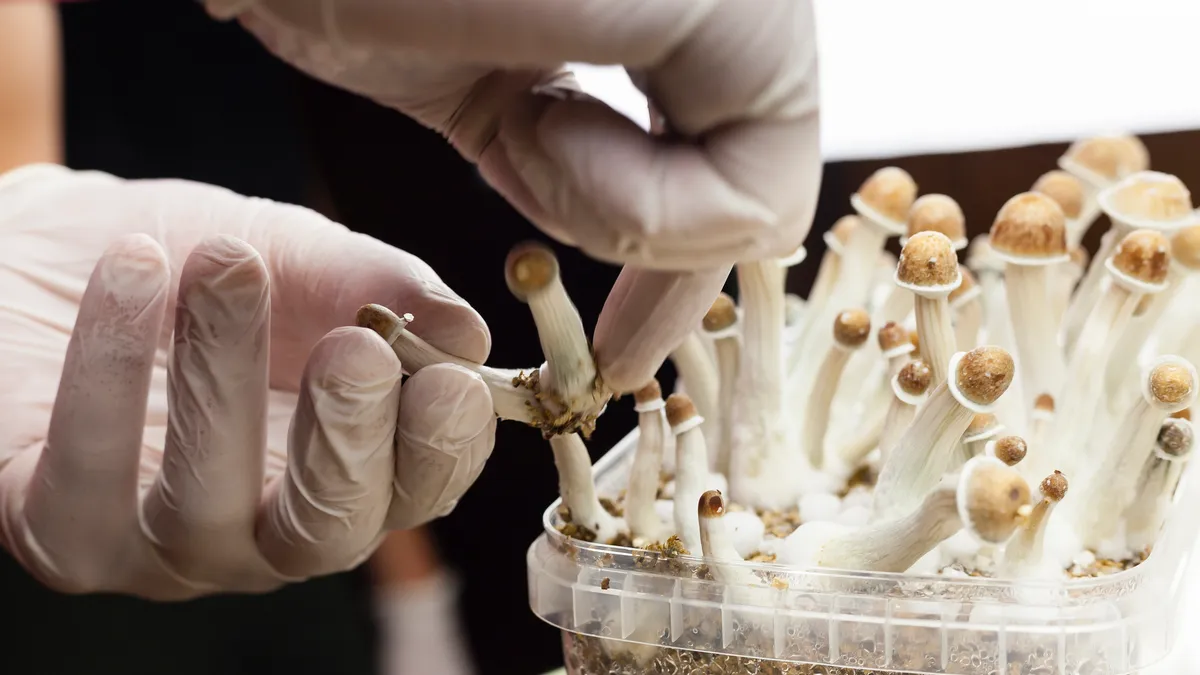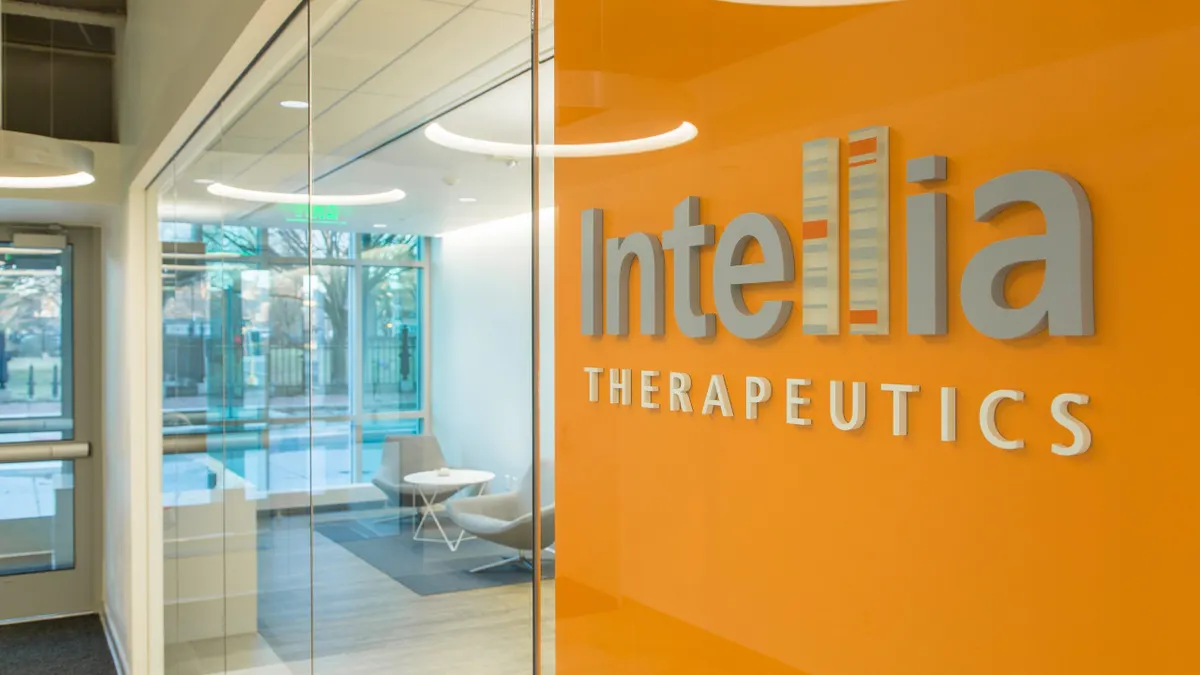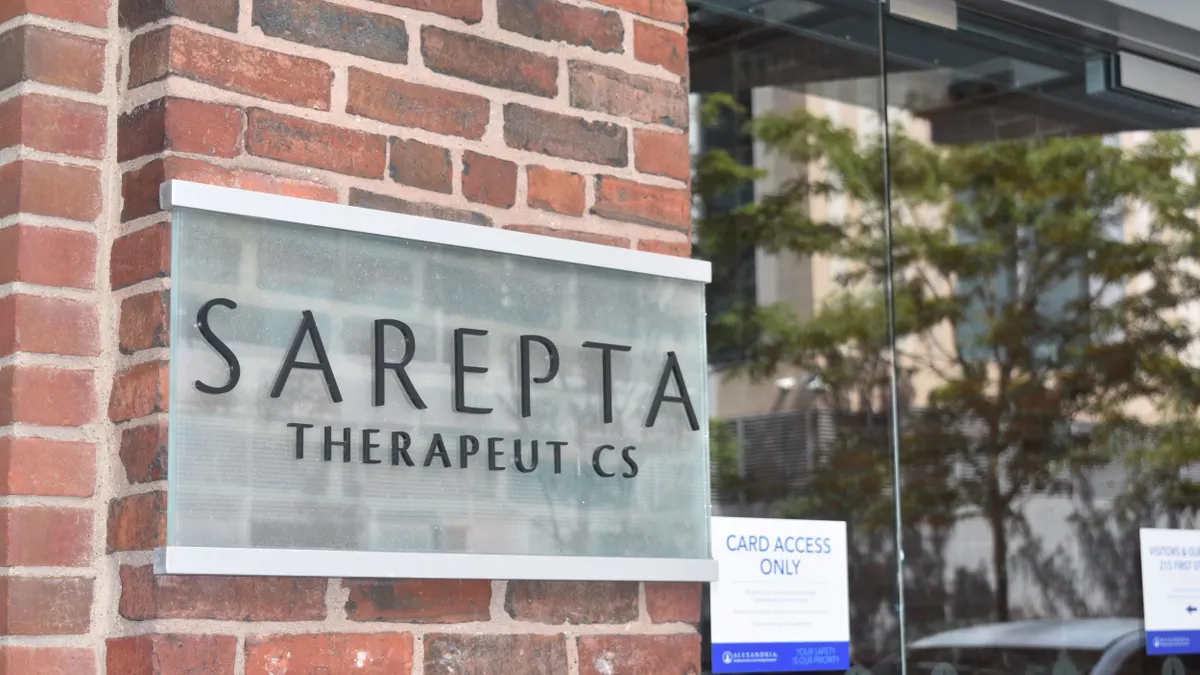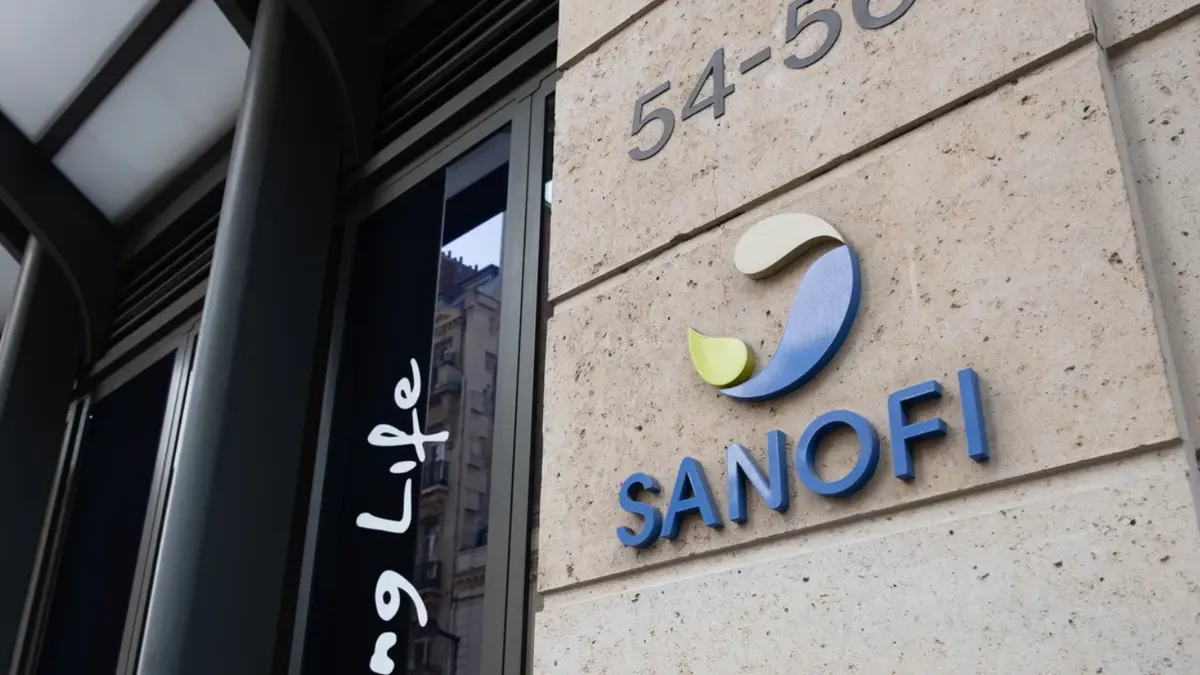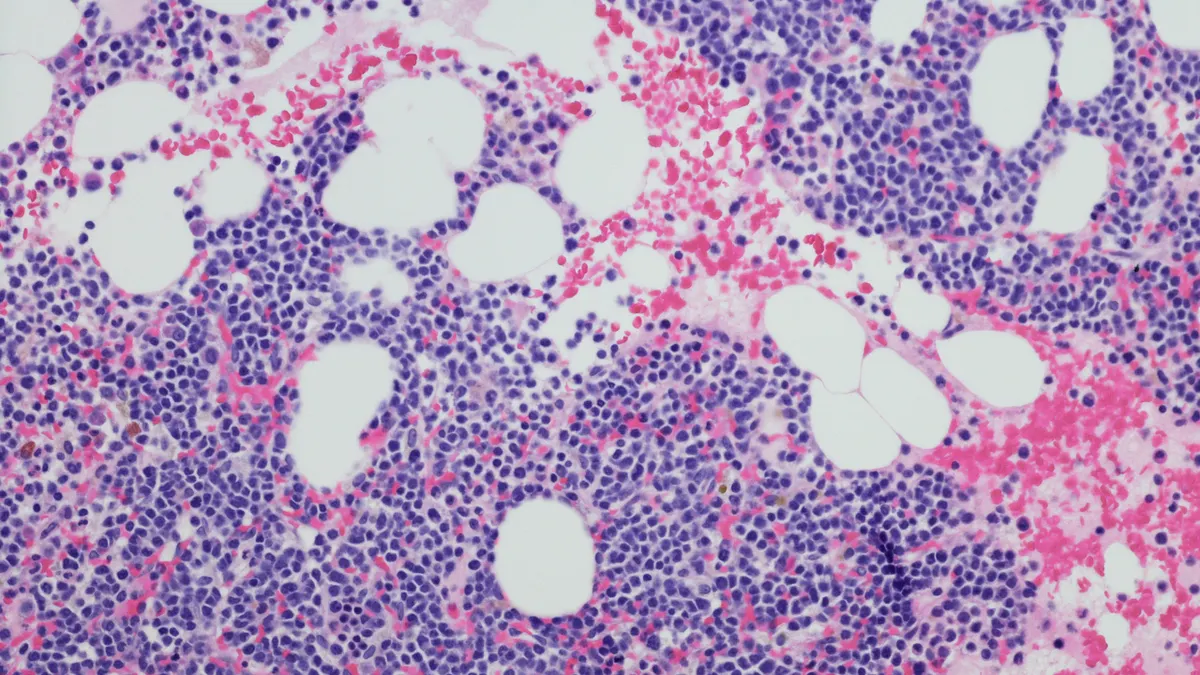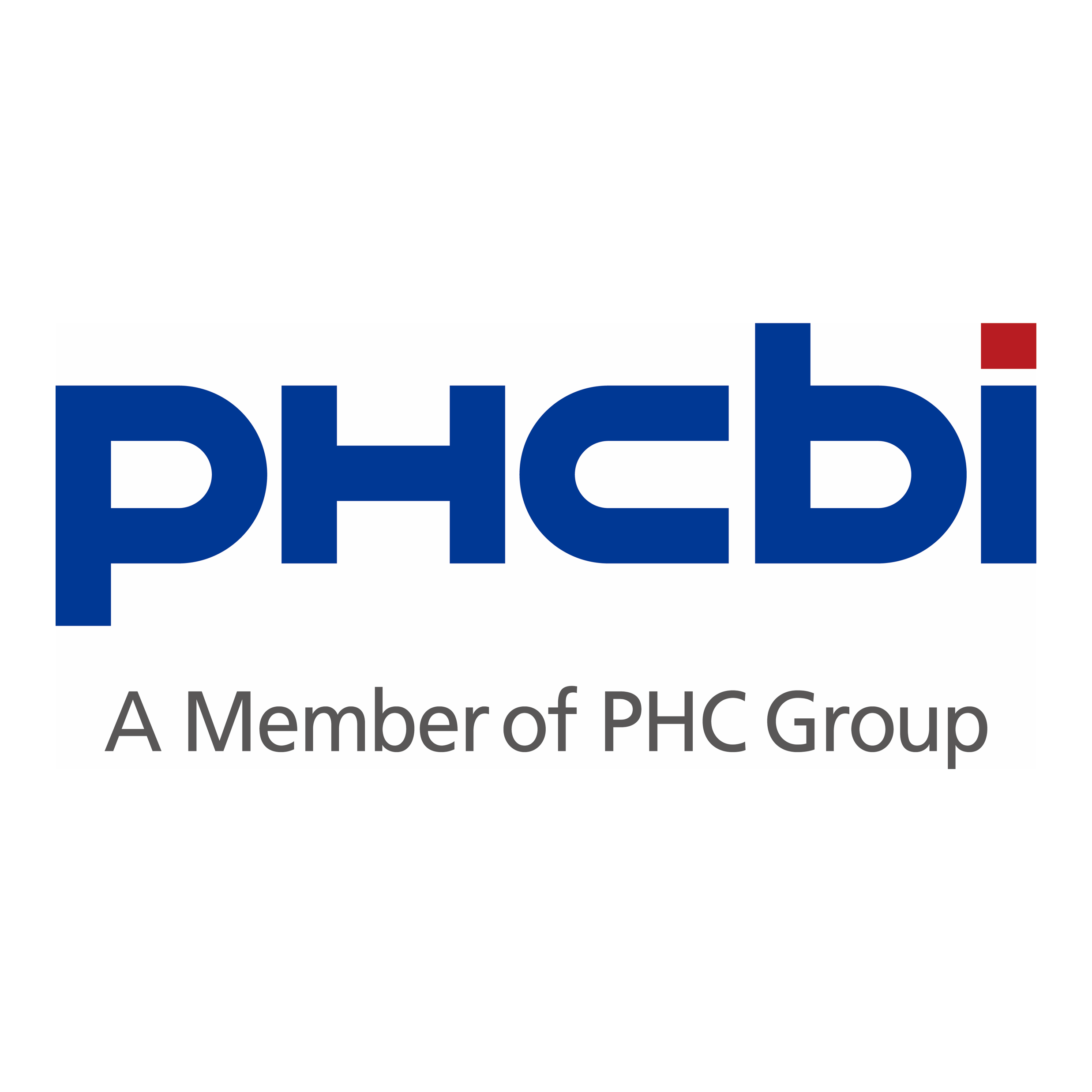The psychedelic drug field hit a setback this month when the Food and Drug Administration rejected Lykos Therapeutics’ application for approval of an MDMA-assisted therapy.
The rejection was not entirely unexpected, after advisers to the FDA had recommended against approval for several reasons, including concerns over drug abuse, alleged sexual misconduct during testing and Lykos’ failure to collect certain data the FDA requested.
While an approval would have been a notable milestone, Lykos’ disappointment could still prove instructive to other biotechnology companies advancing their own psychedelic therapies.
“The FDA’s decision has put the sector on notice that [the agency] will not accept any short cuts,” said Doug Drysdale, CEO of Cybin, a biotech with several psychedelic therapies in the clinic. “While the decision may be impacting psychedelic stocks in the near term, long term we expect FDA rigor to result in more robust studies and outcomes for patients.”
Lykos lessons?
In its August decision, the FDA issued Lykos a complete response letter for its MDMA capsules for people with post-traumatic stress disorder, requesting the company conduct another Phase 3 trial. Lykos said at the time that it planned to request a meeting with the FDA to reconsider the decision and seek recommendations for a resubmission.
However, in the weeks following, Lykos revealed plans to lay off 75% of its staff as part of a “reorganization” before it resubmits an application. The company also recruited David Hough, a former vice president of R&D at Johnshon & Jonhson who helped develop the approved esketamine spray Spravato, to oversee clinical work and “FDA engagement.”
Other biotechs advancing psychedelic compounds, such as MDMA, ketamine, LSD or psilocybin, are similarly targeting PTSD, depression, anxiety and other mental health disorders. And those companies with therapies in mid- and late-stage studies have been taking notes on Lykos’ rejection.
Cybin is preparing to begin Phase 3 testing for its psilocybin-related drug CYB003 in people with major depressive disorder. Cybin completed a meeting with the FDA this month to finish the design of a study that’s slated to begin in late summer 2024.
Both FDA staff and advisers had flagged issues with “functional unblinding” in Lykos’ testing of MDMA-assisted therapy. The effect, which describes how patients can guess their treatment assignment based on their reaction to the drug, remains a key challenge for testing psychoactive substances.
Cybin has attempted to design its study to prevent such unblinding. By using a three-arm design with a high dose, mid-dose and placebo arm, participants may be less likely to guess if they received a therapeutic or sub-therapeutic dose. Like Lykos did in its tests, Cybin is also using remote “raters” to mitigate the risks of unblinding.
Still, the rejection may be specific to Lykos rather than representative of the outlook for the entire psychedelic field.
“During our interactions with the FDA we have received invaluable guidance on the design of our Phase 3 depression program,” said Drysdale, of Cybin. “From a regulatory perspective, we believe that we have a clear roadmap ahead and that the Lykos issues were very much specific to the quality of their [application], rather than a category issue.”
More data ahead
Following behind Lykos are a cluster of biotechs, Cybin among them, that have medicines in mid- to late-stage testing.
Compass Pathways is furthest along in clinical trials with a psilocybin treatment, dubbed COMP360, that it is evaluating for treatment-resistant depression, PTSD and anorexia nervosa. In May, the company announced topline results from its Phase 2 study of the drug in PTSD patients, showing improvements on scales rating symptoms of the condition. Compass expects to reveal topline data from its Phase 3 study of COMP360 in treatment-resistant depression during the fourth quarter.
Australia-based Incannex Healthcare is developing psilocybin-assisted psychotherapy to treat generalized anxiety disorder, and will soon begin Phase 2b testing. The company released topline results from a Phase 2 trial earlier this year.
MindMed, a biotech studying LSD as a treatment for generalized anxiety disorder, also completed a meeting with the FDA in June as it works to finalize its Phase 3 trial design. The company also plans to use tiered dosing.
“We are on schedule to initiate our Phase 3 clinical program for MM120 oral dissolving tablet in GAD in the second half of this year and look forward to sharing additional details on the design of our pivotal program in the coming months,” MindMed CEO Rob Barrow said in June.



